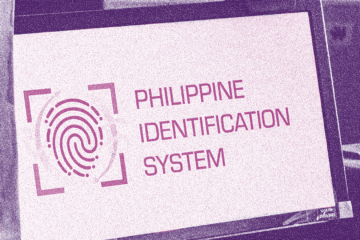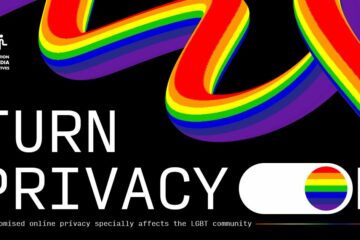This article was originally published on 21 August 2017 as a blog entry at Newsbytes Philippines.
For years now, legislators and law enforcement agencies, with support from the executive branch, consistently push for a mandatory SIM card registration in the country.
In this Congress, proposals pending at the House of Representatives are gaining headway, with a Technical Working Group having been convened to work on a consolidated bill.
The Foundation for Media Alternatives, together with human rights defenders and other civil society organizations, remain opposed to such a measure.
Not only does it undermine one’s constitutional right to privacy and pose a threat to specific sectors and vulnerable groups, it has also been exposed as ineffective and inefficient in some countries that have adopted its use.
This position isn’t always met well. It rests on the idea that privacy is important — a concept that remains obscure to many today. “Why should people care about privacy?” some people ask. Should it be more important than security? How does SIM card registration figure into all this?
Privacy: Beyond secrets
Popular among proponents of a powerful government surveillance machinery and a population with a diminished sense of privacy is the phrase: if you’ve got nothing to hide, you’ve got nothing to fear.
The problem with this argument is that it relies on the premise that privacy is only about hiding bad things. It is not. Privacy is the right to an autonomous sphere free from the intervention or intrusion of the State or other individuals. It is a universal and fundamental human right recognized by many international instruments, constitutions, and national laws.
It goes beyond hiding incriminating or embarrassing personal details. Indispensable to the exercise of other basic rights and to the development and expression of one’s identity, it also fosters the forming of relationships, and allows for social interactions and democracy to thrive.
Anonymity as shield
Anonymity is one of many forms through which privacy manifests itself. As with privacy, it is also viewed by some as favored only by those engaged in things that are immoral, illegal, or both.
This far from the truth. Criminals are not the only ones who wish to evade identification. Besides, the potential to cause harm is true for most, if not all, technologies.
Also, removing anonymity does not necessarily address problems like harassment, which are typically rooted in deeper societal problems.
Meanwhile, the benefits of anonymity are hard to dispute. In repressive environments, anonymity is just about the only surefire protection enjoyed by whistleblowers, human rights defenders, journalists, and members of the political opposition.
It empowers women and members of the LGBTQ community by giving voice to those often denied their right to be heard, and is key to breaking taboos of sexuality and heteronormativity, and to experimenting with gender identity.
Online, it also makes for a safer space for the marginalized by allowing them to speak out against oppression and abuse without fear of retaliation.
All these things may be lost under a SIM card registration system. When one’s primary means of communication is directly linked to one’s real identity, the protection offered by anonymity disappears.
Women, sexual minorities, and other vulnerable groups are exposed anew as targets of unlawful surveillance, trolling, and all sorts of harassment — a very real prospect now that most social media accounts require to be linked to an active mobile number. That means even online identities will not be spared from the measure.
Ineffective and inefficient
SIM card registration advocates often cite the system as a deterrent against crime. Experiences of other countries suggest otherwise. If anything, they’ve shown how criminals always find ways to circumvent it or, worse, to use it to their advantage.
In Pakistan, requiring SIM card registration resulted in the emergence of black markets for unregistered SIM cards, and a rise in identity fraud. Mexico’s card registration law was enacted in 2009 but was repealed just three years later after yielding no improvement in the prevention, investigation, and prosecution of associated crimes. For these same reasons, countries like Canada have rejected proposals to establish a similar measure.
Mandatory SIM card registration also tends to discourage or discriminate against outlier sectors. Requiring people to personally appear and present identification documents in order to purchase a SIM card will prove tricky for those with limited mobility, those that live in remote places, and those who simply do not have basic documentation like birth certificates. They may be forced to forego with registration — and their ability to communicate — altogether.
This is ridiculous and unfair given the current state of ID systems in the country, which exposes a government that is incapable of issuing valid IDs efficiently and, at the same time, preventing the proliferation of fraudulent ones.
To top it off, telecommunications service providers constantly point out that the trend is really towards a SIM-less future for mobile telephony. If true, any measure now calling for a SIM card registry will enjoy a very short shelf life.
All in all, a comprehensive take on the subject suggests that SIM card registration will offer some potential in addressing terrorism and other crimes. But it will be at a cost that may be too great to pay.
It is true that privacy and security are not completely contradictory concepts. In fact, they are mutually reinforcing values that both need to be upheld for the benefit of the people. That said, privacy is a human right, and as such, it should not be sacrificed so easily.
Surrendering it, together with access to communication, in favor of a token level of security is a bargain that FMA and other rights groups are not willing to take. And neither should every Filipino.



0 Comments